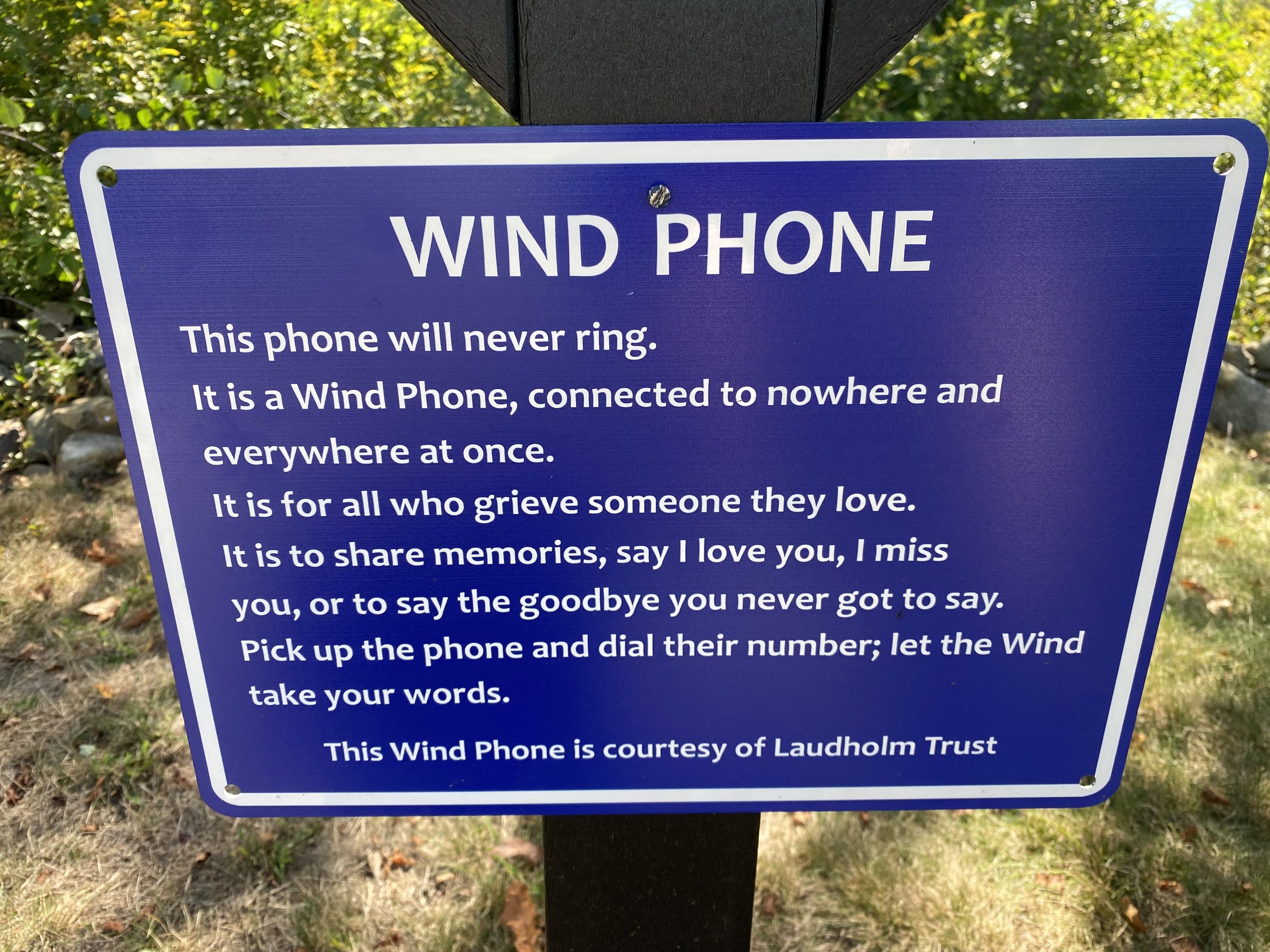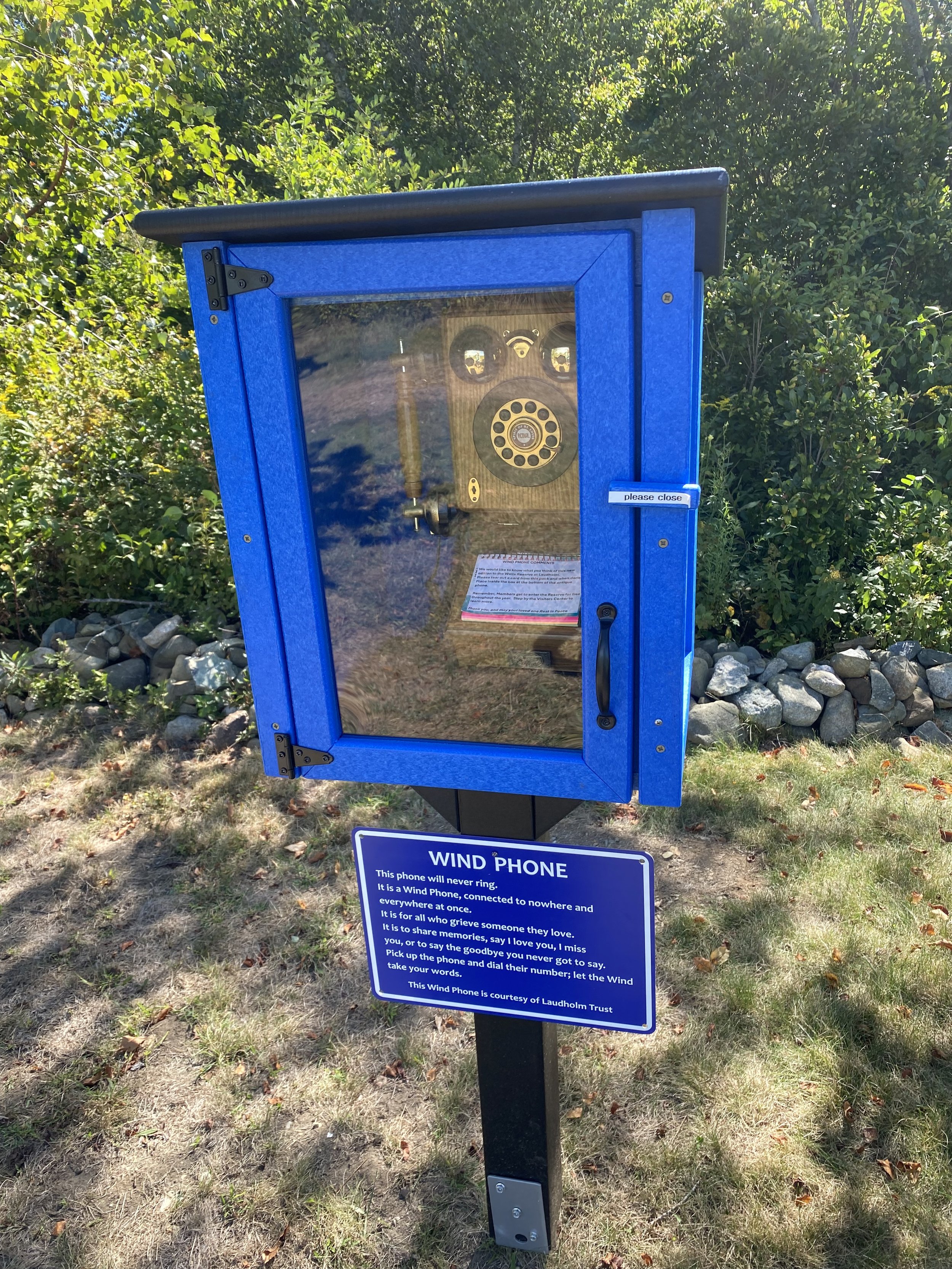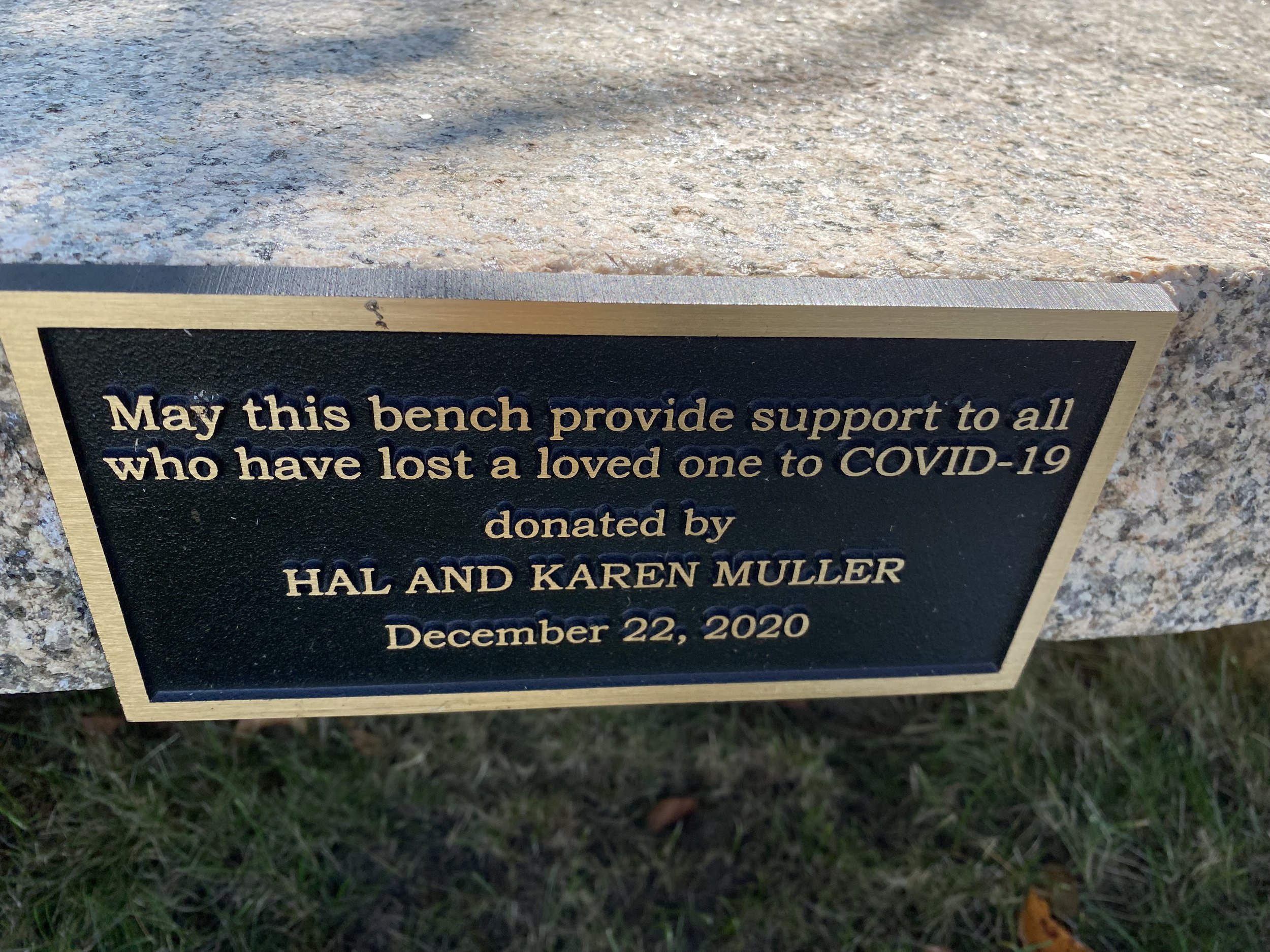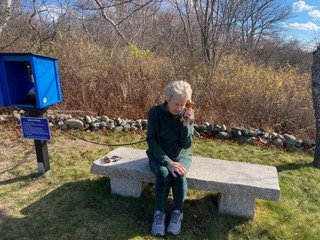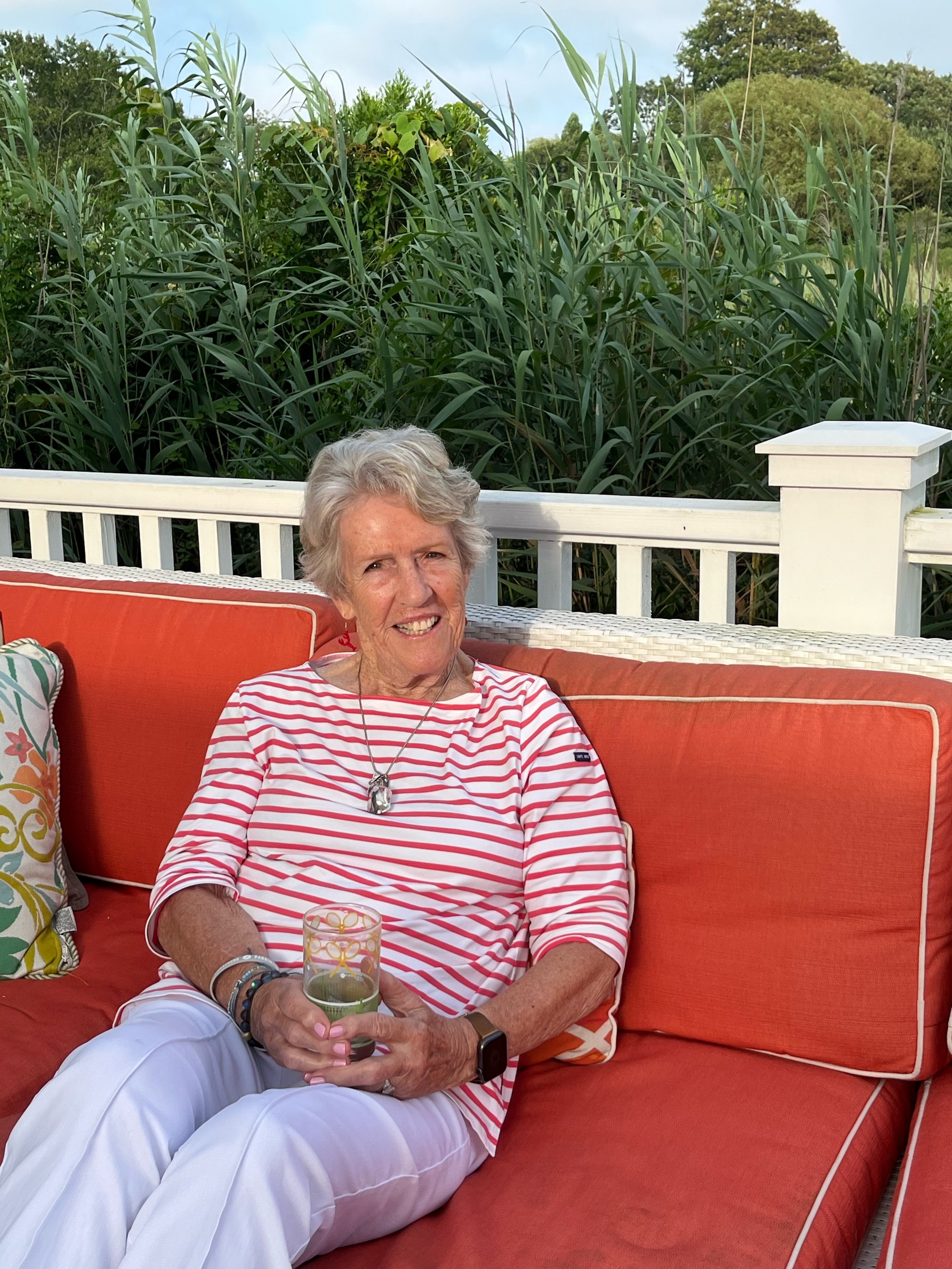THE WIND PHONE -- Loving Words Transported on a Breeze
/The Wind Phone is an article I wrote for the TOURIST AND TOWN FALL/WINTER MAGAZINE several months ago. This story touched my heart in many ways and I’m happy to share with you.
———————-
Japanese garden designer Itaru Sasaki learned in 2010 that his beloved cousin was suffering from terminal cancer with less than three months to live. After his cousin’s death, Sasaki erected a white, glass-paned telephone booth in the Garden of Bell Gardia, his private backyard retreat in Otsuchi (Iwate Prefecture), then placed a black, disconnected rotary-dial phone inside on a metal shelf.
“Because my thoughts couldn’t be relayed over a regular phone line, I wanted them to be carried on the wind to my cousin,” Sasaki said. “The phone was not designed with any specific religious connotation, but rather as a way to cope with and handle my loss.”
One year later, in 2011, a devastating earthquake with accompanying tsunamis struck Japan in the Tohoku and Otsuchi regions, causing the deaths of nearly 20,000 people. The ferocious tsunamis literally swept families and friends away, with no good-byes or final visits for their loved ones. Realizing how the wind phone eased his grief and made him feel as though he was actually communicating with his cousin, Sasaki opened his backyard wind phone to the public, allowing visitors to come and “call” their friends and families who had died in the disaster.
Sasaki said, “I made the ‘phone of the wind’ to provide visitors the opportunity of getting over and through their sorrow by conveying thoughts to their lost family member and friends.” In years since, thousands of mourners from Japan and around the world have visited Otsuchi and “conversed” on Sasaki’s wind phone, giving them the chance to reminisce and say goodbye. In short, to hopefully feel closure.
Today, numerous similar wind phones are situated around the world, invariably in a serene natural setting that fosters healing and personal connection. In 2017, artist Jordan Stern constructed a wind phone in a special spot in Oakland, California to commemorate the death of 36 people in the Ghost Ship warehouse fire. Other wind phones are located in Ireland, Canada, and the United States, including one next to an historic church in Ridgebury, Connecticut. Here in Maine, in addition to one at the Wells Reserve at Laudholm (a local conservation center featuring trails through woodlands and wetlands), there are wind phones in Lewiston and Peaks Island.
Hal Muller, Wells resident and chairman of the Laudholm Trust, heard about the original Japanese wind phone shortly after his 38-year-old son David died of Covid-19. Because of Covid restrictions at the time, Hal and his wife Karen couldn’t travel to New York to say farewell to their only son who passed in 2020, on December 22, at 2:22 in the afternoon. (The number “22” is quite meaningful to the couple.)
Inspired by the unusual idea that a wind phone might help him and Karen feel connected to their son, Hal researched the project and suggested his concept to the Laudholm Trust. This past summer, the wind phone was installed at Laudholm in a secluded and tranquil setting that inspires reflection and healing. The phone provides visitors with a private space to speak their thoughts, share memories or simply find solace within the natural landscape of the Wells Reserve.
“This unique installation, inspired by the original Japanese wind phone, gives us a treasured tie to David,” Muller said. In the grove, the Millers also planted a red maple tree (which today is adorned with lobster motifs “because David loved lobster”) and placed a crescent-shaped granite bench where they sit when they use the wind phone. Muller recalls, “The first time I ‘called’ David, I honestly expected him to answer. The amazing experience took my imagination to something physical.”
Visitors frequently leave sweet thank-you notes inside the Little Free Library-shaped phone box. Recent letters include, “What a nice addition this is! I stopped and said a few words to my wife, who I lost last year. Thank you for doing this — it’s really wonderful,” and “This is innovative and comforting, thank you,” and “Thank you SO very much for the gift to share my ‘I love you’s’ with special people.”
The wind phone has also inspired novels, including THE PHONE BOX AT THE EDGE OF THE WORLD by Italian author Laura Imai Messina, and THE PHONE BOOTH IN MR. HIROTA’S GARDEN by Canadian writer Heather Smith. Additionally, several recent films feature the Japanese wind phone, such as VOICES IN THE WIND, a 2020 Japanese drama about a fictional high school student who lost her entire family in the Tohoku earthquake and tsunami, and returns to her hometown to visit a few years later.
That film’s director, Nobuhiro Suwa, noted, “Going to Tohoku eight years later, you can’t see much of the earthquake and damage. It all has been rebuilt. But people’s feelings have not been fully fixed.”
However, thanks to an imaginative gardener in Japan, feelings can now be imaginatively expressed, and hopefully heard.
————
MY SISTER AND I VISIT THE WIND PHONE TO “TALK” TO OUR PARENTS
Robin and I had mourned our parents’ loss for more than two decades. During those years, we frequently reminded each other of their wit, wisdom and warmth but, other than occasional glances skyward and soft whispers (“I’m using your recipe for nectarine pie today, Mom,” or “Dad, I’m thinking of you on your birthday,”), we had no other “communication.” Truthfully, I wondered, even seriously questioned, whether we would feel or sense that they would hear us. But last fall we made a visit.
After a 10 minute walk from the parking lot of the Wells Reserve at Laudholm, we came to a sequestered leafy grove and spotted a blue wooden cabinet, similar to a Little Free Library. A sign noted: “This phone will never ring. It is connected to nowhere and everywhere at once.” I felt Robin’s growing skepticism (she’s tough; her family nickname is “Nails”), but I was eager to reach inside the cabinet and pick up the receiver.
The 20-foot cord allowed me to sit on a crescent granite bench and say, “Hi Mom and Dad, it’s Val and I’m here with Robin.” I barely got those words out before tears streamed down my cheeks. My throat constricted, my nose leaked and, even though I heard nothing back, the one-sided conversation felt incredibly authentic. I added, “We’re all good down here and feel blessed beyond measure because of everything you and Dad did for us,” then handed the phone to Robin and pulled a Kleenex from my vest pocket.
“Hi Mom and Dad,” I heard her say. Instantaneously, “Nails” choked up, apparently feeling the same special vibe I had. “We are so fortunate you were our parents, and I miss you every day,” she said, wiping away tears with the back of her hand.
After placing the receiver back in the blue cabinet, we sat on the bench, wrapped in our reminiscences, and gazed in blissful silence at the early autumnal vista in front of us. Watching Monarch butterflies swoop over the grassy meadow, Robin noted, “This place is so beautiful yet there are so many contrasts here too. The meadow is vast but this spot feels so intimate. It’s shady here in the grove, but I feel the warm sun on my shoulders and back. And look at those solar panels on that centuries-old farmhouse just beyond the meadow.”
A helicopter buzzing overhead reminded us that it was 2024, and that our parents had died years before. But for one incredibly brief unique moment which I still hold dear today, I know Mom and Dad heard us, and that was magical.

